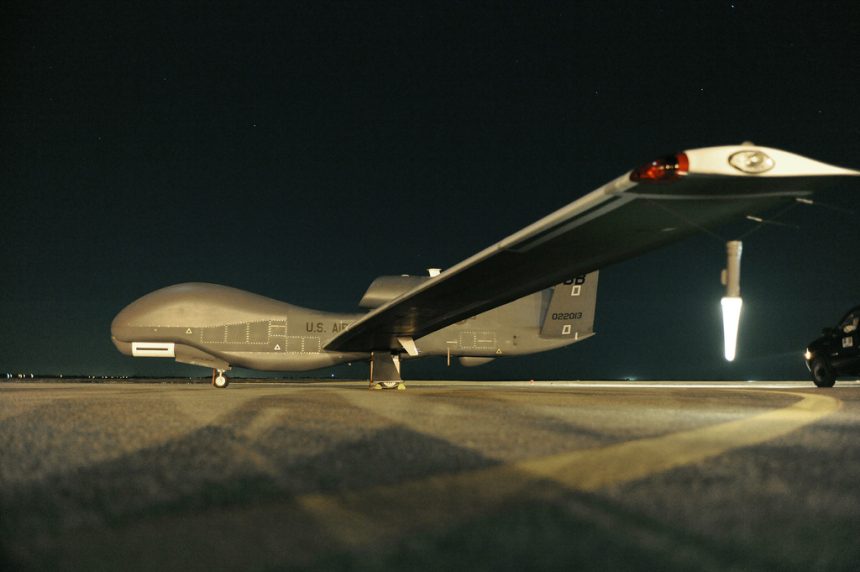According to NATO, the AGS (Alliance Ground Surveillance), a project that is based on high-altitude long range UAS (Unmanned Aerial Systems), a main operating base and several command and control stations to monitor “what’s happening on the ground, at long range, over periods of time, around the clock, in any weather”, will not end due to the German withdrawal from the Eurohawk programme.
As TheAviationist reported earlier, the withdrawal of Germany is caused by extremely high cost of introducing the drones into the European airspace environment.
NATO officials claim that Block 40 Global Hawk drones are going to be the main assets in the AGS. They are to operate from Sigonella airbase in Sicily by 2017.
The cooperative defense project involves 13 nations: Bulgaria, the Czech Republic, Estonia, Germany, Italy, Latvia, Lithuania, Luxembourg, Norway, Romania, Slovakia, Slovenia, and the United States.
Poland joined later, but it already opted out.
The main reason for Germany to opt out was the cost.
Even if the AGS goal goes beyond reconnaisance (as it will support SAR activities as well), the recently increased military activity beyond the Poland’s eastern border may be the real reason for introducing the drones into the European airspace.
Nevertheless, the problem does not necessarily stem from the budget, but from the European legal background, with its strict provisions when it comes to the air-traffic.
It would be very hard to introduce an autonomous airframe, such as Global Hawk into this environment; the consequent risk seems to restrain Germany from being an active part of the AGS.
Jacek Siminski for TheAviationist
Related articles













